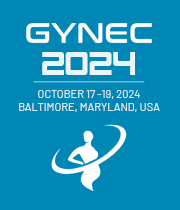Title : Effect of prenatal psychological distress on preterm birth: Findings from the ECHO-wide cohort in the United States
Abstract:
Introduction: Preterm birth (PTB) is a global public health concern and the leading cause of death in children under 5 years of age. Despite efforts over the past decade, the incidence of PTB remains high, reaching 10.4% in the United States (US). Identifying the risk factors of PTB is necessary to address the associated risk of morbidity and mortality across the lifespan. Pregnant women are at higher risk of mental health issues. The effects of prenatal psychological distress (PPD) on PTB are relatively understudied.
Objective: This study aimed to explore the association between two PPD dimensions, antenatal depression and perceived stress, and the risk of PTB in pregnant women from the Environmental Influences on Child Health Outcomes (ECHO)-wide cohort in the US.
Methods: Depressive symptoms and perceived stress were assessed using the 10-item Edinburgh Postnatal Depression Scale (EPDS) and the 10-item Perceived Stress Scale (PSS), respectively. Pregnant women were classified into the PPD group if they achieved an EPDS score of ≥12 and a PSS score of ≥23 (based on the 75th percentile of the sample’s total PSS scores). Data on estimated gestational age at birth were abstracted from medical records. A gestational age at birth of less than 37 weeks indicated a PTB. Sociodemographic and anthropometric information were collected by questionnaires and medical records abstraction. Study covariates were identified following a biopsychosocial model of stress. Multiple logistic regression was conducted to estimate the risk of PTB in pregnant women with PPD.
Results: Of the 1,649 pregnant women included, 120 (7.3%) experienced PPD, of which 12.5% had PTB (N=15). Adjusted logistic models demonstrated strong effects of antenatal depression, perceived stress and combined PPD exposure on PTB; antenatal depression (aOR: 1.68; 95% CI: 0.88-3.18; P=0.11, N=1,547), perceived stress (aOR: 1.82; 95% CI: 0.98-3.39; P=0.059, N=1, 522), and PPD (aOR: 1.84; 95% CI: 0.99-3.43; P=0.054, N=1,551),. Carrying a female fetus was a significant predictor of PTB in women with PPD (aOR=1.67: 95% CI: 1.13-2.46; P=0.009, N=1551). Additionally, women exposed to PPD in the second trimester (≥14 weeks and ≤27 weeks gestation) achieved the highest odds of PTB (aOR=3.2, 95% CI: 1.4-7.0; P=0.004, N=834).
Conclusion: The risk of PTB is elevated in women exposed to PPD, indicating the urgency of incorporating multidisciplinary teams and mental health services in prenatal care. Future research should investigate the role of social support and explore the biological pathways mediating the effect of PPD on PTB.
Audience Take Away:
- Recognize the gaps in current literature on the impact of prenatal psychological distress on birth trajectories.
- Apply advanced statistical techniques to investigate the association between prenatal psychological distress and the risk of preterm birth.
- Identify key predictors of preterm birth in pregnant women with PPD through a biopsychosocial model of stress.
- Analyze the impact of trimester-specific exposure to prenatal psychological distress on the likelihood of preterm birth.
- Evaluate the implications of the research findings for clinical practice, public health interventions, and future investigations.



